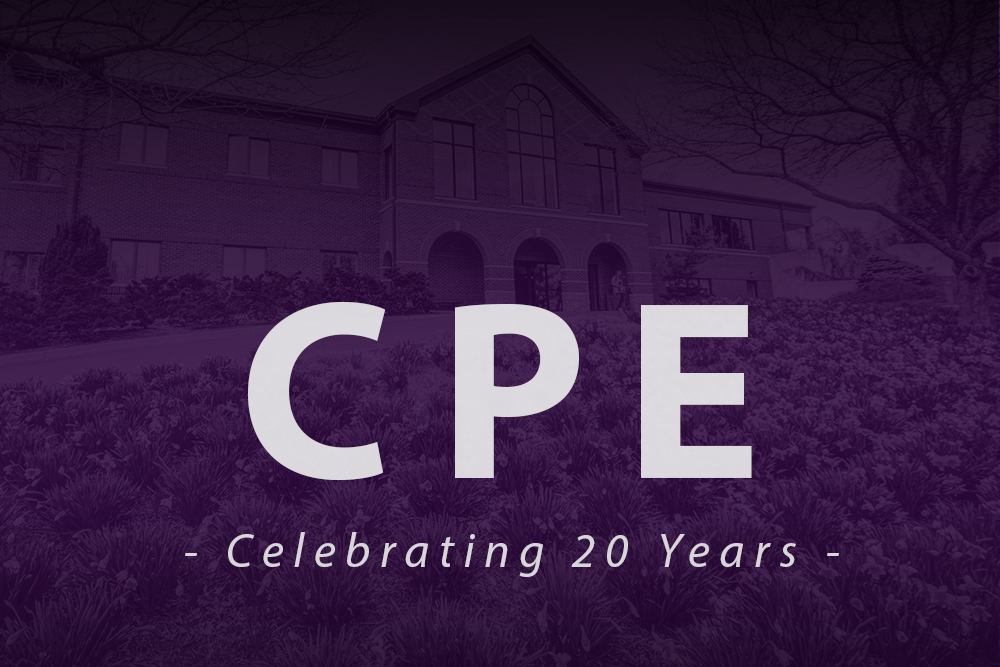The Clinical Pastoral Education program at Eastern Mennonite Seminary celebrates its 20th anniversary this academic year. Since 1999, 290 people have been trained through the seminary’s program. They serve and minister in a variety of contexts and many states, carrying their CPE practice learnings with them wherever they work.
We’ve invited a series of guest writers to share about how CPE training has shaped their life and ministry. Join us at a celebration during the January 2020 School for Leadership Training. To learn more, visit https://emu.edu/seminary/slt/
Lorrie Aikens MDiv ‘18, pastor of the Bath United Methodist Charge, offers reflections below.
Also enjoy posts by our guest authors Anne Kauffman Weaver, Melanie K. Lewis, Shawn Gerber, Lisa Meyer Vineyard and Phil Kanagy.

One person lay on the ground crying out in pain with irregular breathing outside a hospital. The professionals gathered around to help in the best way possible. Every dynamic of a person’s being was carefully attended to: the physical, emotional, and spiritual. Standing to the side, the cries of pain pierced my heart. The pain of my brother’s recent death surfaced full throttle. Eyes closed, my pleas for God’s mercy and quick release from the afflictions riddling within this person before me poured out from my heart, “Lord, hear this person’s cries!” I was overcome with sorrow and became planted to the spot where I prayed.
I celebrate Clinical Pastoral Education at Eastern Mennonite Seminary in the ongoing spiritual journey even in this moment as I return to the practice of reflective processing over and over again as a pastor of four United Methodist churches on the Bath Charge in Hot Springs, Virginia. As a process theologian, evaluation of situations such as the one I encountered early in CPE as a hospital chaplain intern became an important part of being a more effective pastor. Asking myself questions to determine symptoms of anxiety, feelings in the midst of the experience, my thoughts and behaviors during and following the event, and assessing my reaction in terms of fruits of the Spirit, Christian principles, differentiation of self and any other values that are important to me determined guiding principles by which to respond, not react, in the future. Continual new learnings using the Bowen Family Systems Theory surfaced throughout the entire process of CPE in a safe and reflective environment that invited personal conversation with the advisor, Kenton Derstine, and my peers and fellow compatriots.
I will always be grateful for the reflective process that lead to my understanding of how I respond to the pain of others. Through the pain of the patient crying out on the ground outside the hospital and reflection on the functioning of my family of origin, I discovered how my family buries such pain and never really discussed it in the past with the loss of my baby sister or in the recent death of my brother who suffered tremendously. This was making personal processing of loss and pain extremely difficult. The key to my reflections could be found in exploring the behaviors of my family of origin with the guidance of the Holy Spirit resulting in fruitful conversations with my parents and remaining brother. In each conversation, the opportunity arose for self-differentiation. That is, as Bowen describes to listen and respond, not react, to the thoughts and ideas shared by other members of the family (or group) even when the ideas of others are different from your own. This was extremely important in understanding myself and how I relate to others.
Thus, understanding self and applying Bowen’s Theory in the context and setting of ministry with a myriad of personalities and life experiences can bear spiritual fruit for the kingdom of God. CPE helped me to relate to the challenge of loss within each congregation where many have experienced serious illness and loss of loved ones. Such loss affects the family personally as well as the congregation wherein the member abides and actually, the whole community for it is small with just a little under 5,000 people throughout the county. Through CPE and specifically my personal goal, “to become more effective in my care of family members processing grief,” I became better equipped to walk with families in their grief. To do so means to honor what God created within me for the glory of God’s kingdom in such a way that honors others and encourages others to receive God’s love and love others as well.
The gift of the Clinical Pastoral Education is invaluable and an ongoing work. The God-given gifts of the instructor/advisors are apparent. They live the principles that guide who they are in Christ, model the Bowen theory in ways that enlighten and guide participants, and are able to differentiate self throughout the journey of clinical care. My deepest gratitude to each of you.. Blessings to all!
Lorrie Aikens has served the Bath Charge in Hot Springs, Virginia, for the past eight years, and spent a year before that with the Cokesbury Charge in Front Royal, Virginia. She came to the ministry after 24 years of teaching (21 in the Clarke County Public Schools) and five years in social services. She earned her Master of Divinity degree from Eastern Mennonite Seminary in 2018, and also holds an MS in Education from Shenandoah University and a BS in elementary education from the University of Maine at Farmington. She and husband Bradley Aikens have been married 41 years, with three adult children and 10 grandchildren. God was calling and preparing me for ministry from the time I was born,” she says. “Life has been a mission and ministry wherever I lived.”
